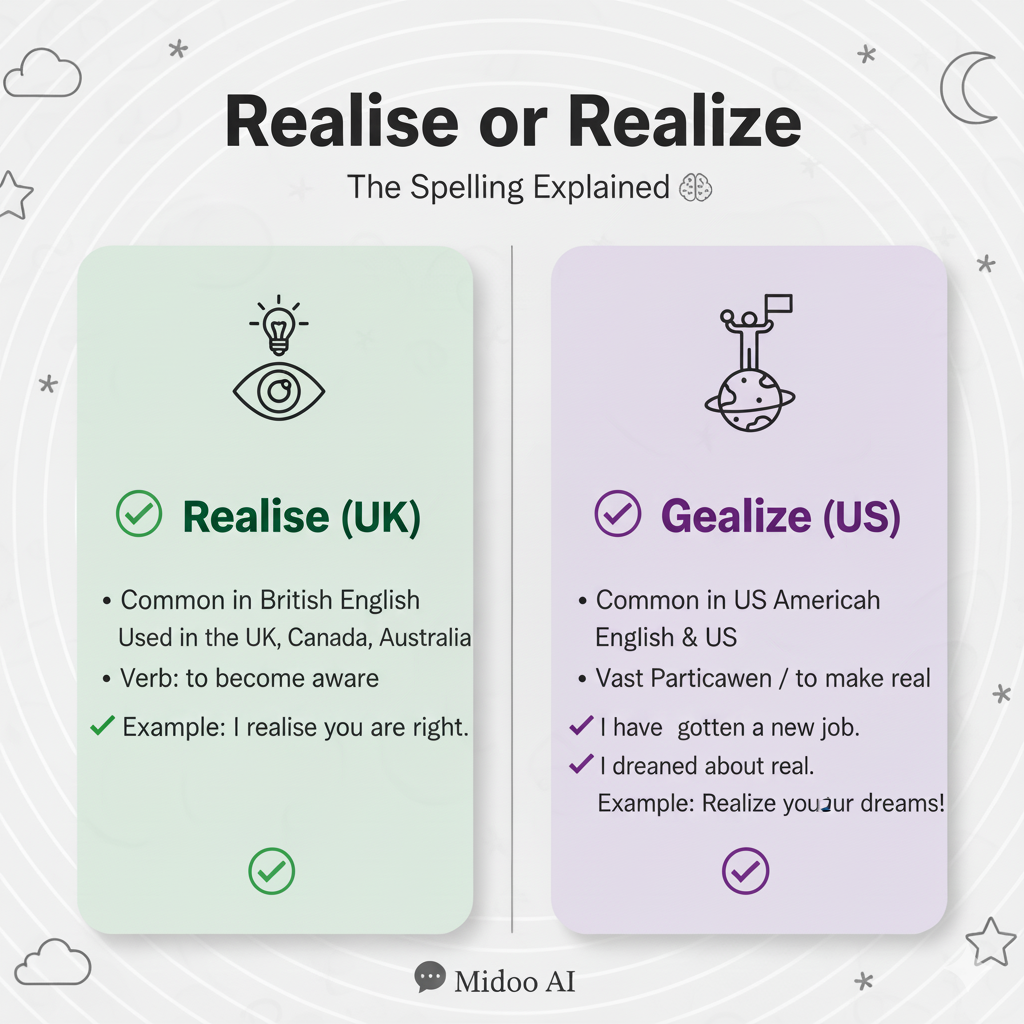Realise vs. Realize: Understanding the Spelling Difference

At Midoo AI, many English learners tell us they feel unsure whether to write “realise” or “realize.”
They look almost the same, and both sound the same — so which one is correct?
The good news is: both are correct, but which one you use depends on British vs. American English.
Let’s walk through how they’re used and when to choose each spelling.
Realise — British English 🇬🇧
“Realise” is the standard spelling in British English and other countries that follow British conventions, such as Australia, New Zealand, and South Africa.
Examples:
- I didn’t realise it was already so late.
- She just realised her mistake.
- He finally realised his dream of becoming a pilot.
- Did you realise how much progress you’ve made?
- They suddenly realised they were lost.
💡 Tip: Use “realise” if you’re writing for a British or international audience.
Realize — American English 🇺🇸
“Realize” is the standard spelling in American English.
In the U.S., using “realise” will look like a spelling mistake.
Examples:
- I didn’t realize it was already so late.
- She just realized her mistake.
- He finally realized his dream of becoming a pilot.
- Did you realize how much progress you’ve made?
- They suddenly realized they were lost.
💡 Tip: Use “realize” if you’re writing for an American audience.
Quick Memory Trick
- 🇬🇧 Realise → British English
- 🇺🇸 Realize → American English
They mean the exact same thing. Only the spelling is different.
FAQ
Q: Is “realise” wrong in the U.S.?
A: It’s not technically wrong, but it will look like a spelling error to most Americans. Always use “realize” in U.S. English.
Q: Is “realize” accepted in the U.K.?
A: Yes, it is accepted, but “realise” is more common and preferred in British English.
Q: Do they have any meaning difference?
A: No, they mean exactly the same thing.
Q: Which one should I use in exams?
A: Match the version of English you’re using. If you’re writing in British English, use “realise”; if in American English, use “realize.”